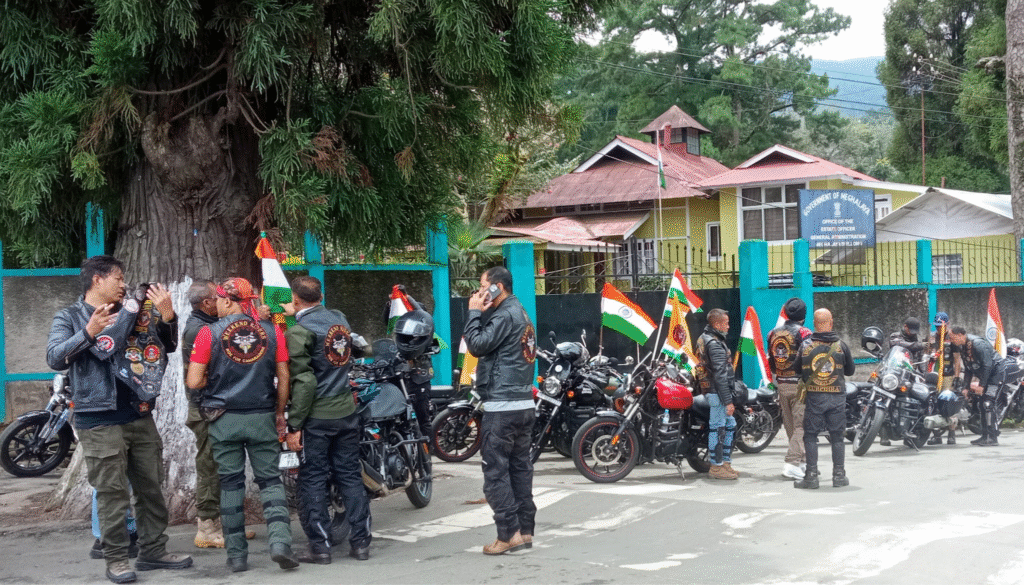Shillong

Shillong, the native soil of three hill communities Khasi, Garo and Jaintia presents a mosaic spectrum of distinct cultures which co-exist since ages. The residents of Shillong are the Khasi Tribe who are mainly Christians. Apart from Khasi, many communities such as Nepali communities also inhabit in Shillong hills.
The Khasi society is matrilineal, mother is head of the family. Mother’s surname is passed on to their child. After wedding, groom has to live in the bride’s house. The men have to assume the bride’s family surname. After three days of the nuptial, newly wedded couple visits the groom’s house. The youngest daughter of the family inherits all the property and stays at her mother’s house. All other childrens get shares from ancestral properties but regardless of this fact, daughters move out with their husbands to build their separate residence after marriage.
The people here are exceptionally hospitable and friendly. People in Shillong welcome their guests with tremendous curtsey and you can talk to them in a very sweet and companionable tone. They have smiling faces which demonstrate exceedingly enthusiastic and zealous disposition. A Khasi provides you a betel nut, locally known as ‘Kwai’ as a welcoming gesture on any alliance or friendship. In local customs, when somebody visits a family, the homemade rice beer is served. A cultural attire of Khasi woman is ‘Jainsem’ i.e. two pieces of cloth pinned at the shoulder that is covered with a shawl or Tapmohkhlieh.

In earlier times, the indigenous people belonging to khasi community used to wear dhoti, half coat along with a turban; however, the increasing western influence have made people dress in shirts and trousers. Only rare festive occasions are attended with cultural attire.
The traditional gastronomy of Khasi, Garo and Jaintia tribes is marked with various delectable culinary items such as Tung-Rymbai, Putharao, Pudoh, Tungrymbai, Jadoh, Ki Kpu, Sakkin Gata, Dohkhlieh, Dohneiong, Pumaloi, Mylliem Chicken, Nakham Bitchi, Minil Songa, Mommo, Kyat, Tit Tung, Jastem, Khiew Ranei, Pukhlein, Pickled Bamboo Shoots or Rice Beer, etc. Holiday at Shillong is incomplete without savoring the mouth watering taste of many exclusive items of local cuisines.
